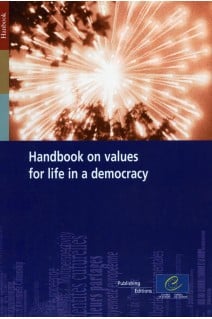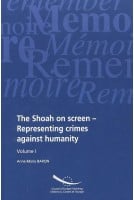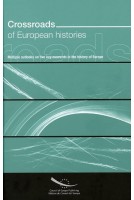



The Council of Europe project "Cultural identities, shared values and citizenship" (2006-2008) was launched after the Organisation's 3rd Summit (Warsaw, 2005). It was based on the premise that an awareness and appreciation of Europe's rich diversity of cultures and heritages and how they have interacted with each other over time are essential preconditions for mutual respect, peaceful coexistence, intercultural dialogue, a shared attachment to common values and an emerging European cultural citizenship.One of the outcomes of the project was the Handbook on values for life in a democracy which is structured around a series of key questions to promote discussion among young people about universal human rights and the implementation of core European values.This book encourages the reader to apply these values to a variety of issues. The case studies it presents and the discussion cards are designed to promote an approach to discussion where each participant can:* develop his or her own point of view in relation to others;* think about clashes of values and human rights and how they might be resolved in fair, balanced, proportionate and peaceful ways;* empathise with others' points of views (even if not agreeing with them);* engage in dialogue over disputed issues rather than in monologues based solely on his or her own point of view or cultural perspective;* set particular issues and debates into a wider historical, cultural and global context.These core "procedural" values need to be practised and upheld not only in the law courts but in our everyday dealings with each other. Otherwise they become meaningless and we will cease to have any real sense of commitment to them. Just as we learn skills by practising them, so we acquire these values by practising them.
Preface
The authors
The aims and structure of this book
Introduction: Cultural identities, shared values and citizenship
Key question one: How is the ordinary person to be protected against the arbitrary power of the state?
Case study 1: The case of extraordinary renditions in the "war on terror"
Case study 2: When a totalitarian regime is overthrown, should the secret police files be destroyed or should the archives be opened so that society can confront its past?
Key question two: Does the state need to protect people from themselves?
Case study 3: The banning of tobacco smoking in public places
Case study 4: The right to live and the right to die
Key question three: Do we have the right to freely express ourselves in any way we wish?
Case study 5: Free speech or religious offence - the case of the Danish cartoons mocking the Prophet Mohammed
Case study 6: The right to march to commemorate one's cultural history - the case of Northern Ireland
Key question four: Does everybody have the right to live where they wish?
Case study 7: Political refugees or economic migrants? Europe's changing response to immigration
Case study 8: The process of becoming a minority
Key question five: Can there be a "just war"?
Case study 9: The "war on terror"
Case study 10: Cultural monuments or human lives? The case for the protection of cultural property
Key question six: What is more important: maintaining a healthy national economy or ensuring that everyone is entitled to the basic necessities of life?
Case study 11: Did the end of communism leave the elderly and vulnerable in a worse position?
Case study 12: Has government intervention been effective in promoting the principle of equal pay for equal work?
Case study 13: Women have the same right to education as men. Why is it that they cannot always exercise that right?
Key question seven: Why do human beings seem to find it so difficult to look after their environment?
Case study 14: The Kyoto Protocol and the debate on the speed and impact of climate change
Case study 15: How are we going to meet our increasing energy needs in the 21st century?
Key question eight: Is democracy enough?
Case study 16: Can democracy take root when it is transplanted? The example of Iraq
Case study 17: Can new technologies help to make governments more accountable to the people?
Conclusion







The Council of Europe project "Cultural identities, shared values and citizenship" (2006-2008) was launched after the Organisation's 3rd Summit (Warsaw, 2005). It was based on the premise that an awareness and appreciation of Europe's rich diversity of cultures and heritages and how they have interacted with each other over time are essential preconditions for mutual respect, peaceful coexistence, intercultural dialogue, a shared attachment to common values and an emerging European cultural citizenship.One of the outcomes of the project was the Handbook on values for life in a democracy which is structured around a series of key questions to promote discussion among young people about universal human rights and the implementation of core European values.This book encourages the reader to apply these values to a variety of issues. The case studies it presents and the discussion cards are designed to promote an approach to discussion where each participant can:* develop his or her own point of view in relation to others;* think about clashes of values and human rights and how they might be resolved in fair, balanced, proportionate and peaceful ways;* empathise with others' points of views (even if not agreeing with them);* engage in dialogue over disputed issues rather than in monologues based solely on his or her own point of view or cultural perspective;* set particular issues and debates into a wider historical, cultural and global context.These core "procedural" values need to be practised and upheld not only in the law courts but in our everyday dealings with each other. Otherwise they become meaningless and we will cease to have any real sense of commitment to them. Just as we learn skills by practising them, so we acquire these values by practising them.
Please note that in accordance with our terms & conditions, PDF/epubs may only be purchased by private individuals.
